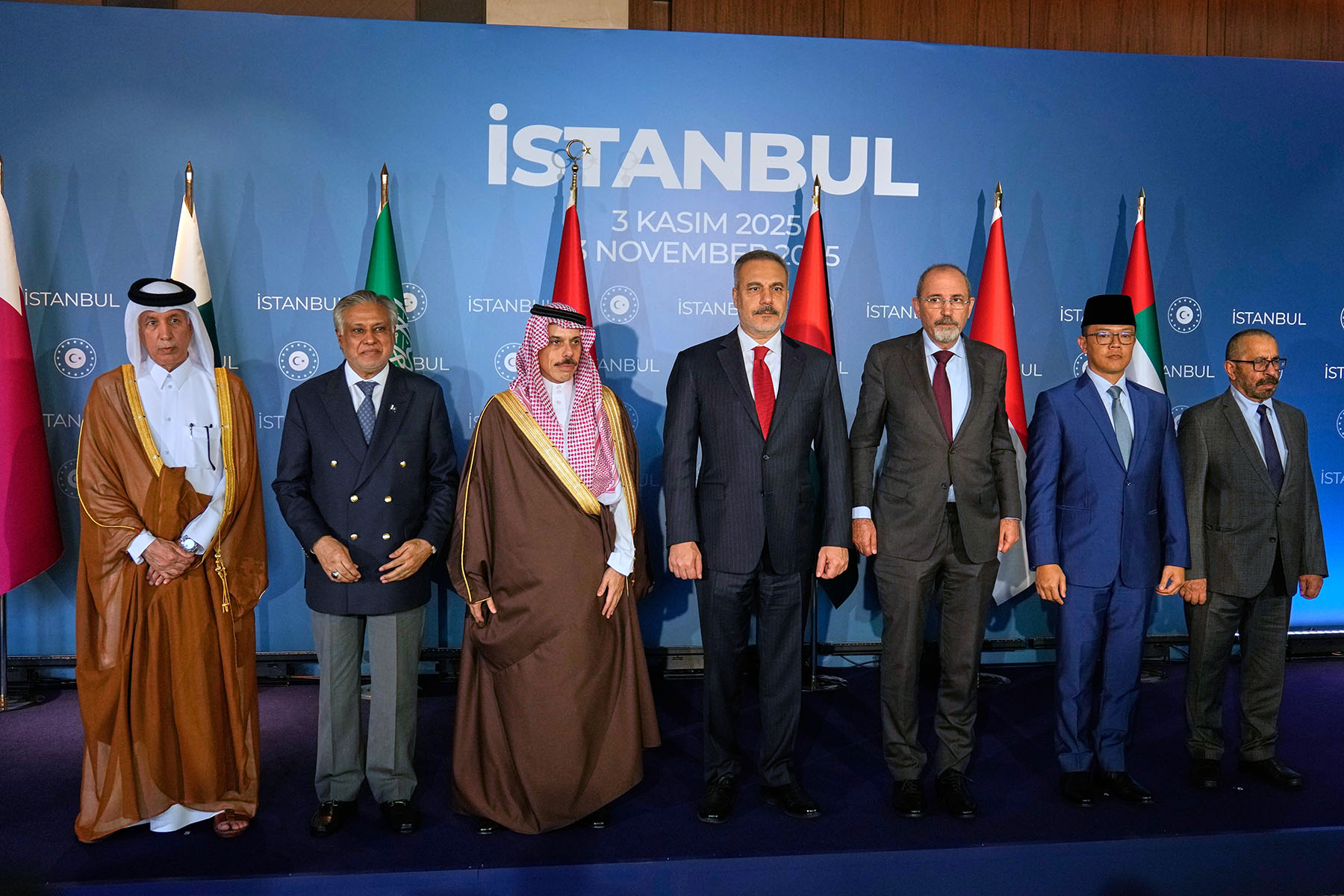
Foreign ministers from Arab and Muslim-majority countries reiterated their support for Palestinians governing their own state as they pondered the future establishment of a global peace force in a Gaza ceasefire deal meeting.
Turkiye's Foreign Minister Hakan Fidan hosted his counterparts from the United Arab Emirates, Indonesia, Qatar, Pakistan, Saudi Arabia, and Jordan in Istanbul on Monday.
He told reporters the seven countries shared a common stance that "Palestine should be governed and secured by Palestinians", Xinhua News Agency reported.
READ MORE: Palestinian PM says Gaza reconstruction plan sent to international partners
Fidan also accused Israel of regularly violating the truce and still blocking humanitarian aid and said the ministers agreed that they "do not want the atrocities in Gaza to resume" and wanted continued steps that would lead to the two-state solution.
However, despite the foreign ministers' wishes and a United States-brokered ceasefire in place since Oct 10, Israel has killed 236 Palestinian civilians and injured 600 others, WAFA News Agency reported.
As recently as Monday, Israeli fighter jets reportedly struck Gaza City. Aerial and artillery bombardments have allegedly been ongoing since Sunday in Khan Younis and Gaza City, killing and injuring several civilians, according to the news agency.
On Saturday, Jordanian Foreign Minister Ayman Safadi said at the International Institute for Strategic Studies Manama Dialogue conference in Bahrain that they all agreed that a stabilization force would be effective in getting the job done, but it has to have a United Nations Security Council mandate, Arab News reported.
Safadi said Jordan would not be sending its own forces to the Gaza Strip but said his country was ready to cooperate with the international force.
These developments came as the US sent several UN Security Council members a draft resolution on Monday for the establishment of an international force in Gaza for a duration of at least two years, according to a report by US news website Axios.
Broad mandate
The report said the draft resolution would reportedly give the US and other participating countries a broad mandate to govern Gaza and provide security through 2027, with the possibility of extensions beyond that.
Qatari Emir Sheikh Tamim bin Hamad Al Thani called on the international community to double down on efforts to support the Palestinian people in rebuilding, Al Jazeera reported.
Gokhan Ereli, Gulf studies coordinator at the Center for Middle Eastern Studies in Turkiye, told China Daily that the Istanbul meeting can be viewed as a direct continuation of the diplomatic consultations held on the margins of the UN General Assembly in September.
"Central to these discussions is the idea of establishing an international 'task force' to help stabilize Gaza — an initiative broadly supported by the international community," Ereli said.
"Yet, Ankara and Arab capitals emphasize that such an arrangement must remain temporary, enabling Palestinians to ultimately govern themselves," he added.
ALSO READ: Lebanese president orders army to counter Israeli incursion after deadly raid
Ereli said Turkiye's position underscores that Hamas is prepared to transfer Gaza's administrative authority to a committee composed of Palestinians. The durability of these arrangements, he said, will depend on their ability to uphold Palestinian rights and resist external provocations.
"Arab countries want Gaza to be secured and governed by Palestinians themselves, with regional or UN help, only for a short time to rebuild and stabilize things," he noted.
"The US, on the other hand, looks at Gaza mainly through Israel's security needs — wanting to make sure groups like Hamas don't regain power. So while Arabs talk about 'Palestinian control', Washington talks about 'Israeli safety'," said Ereli.
Contact the writers at jan@chinadailyapac.com


